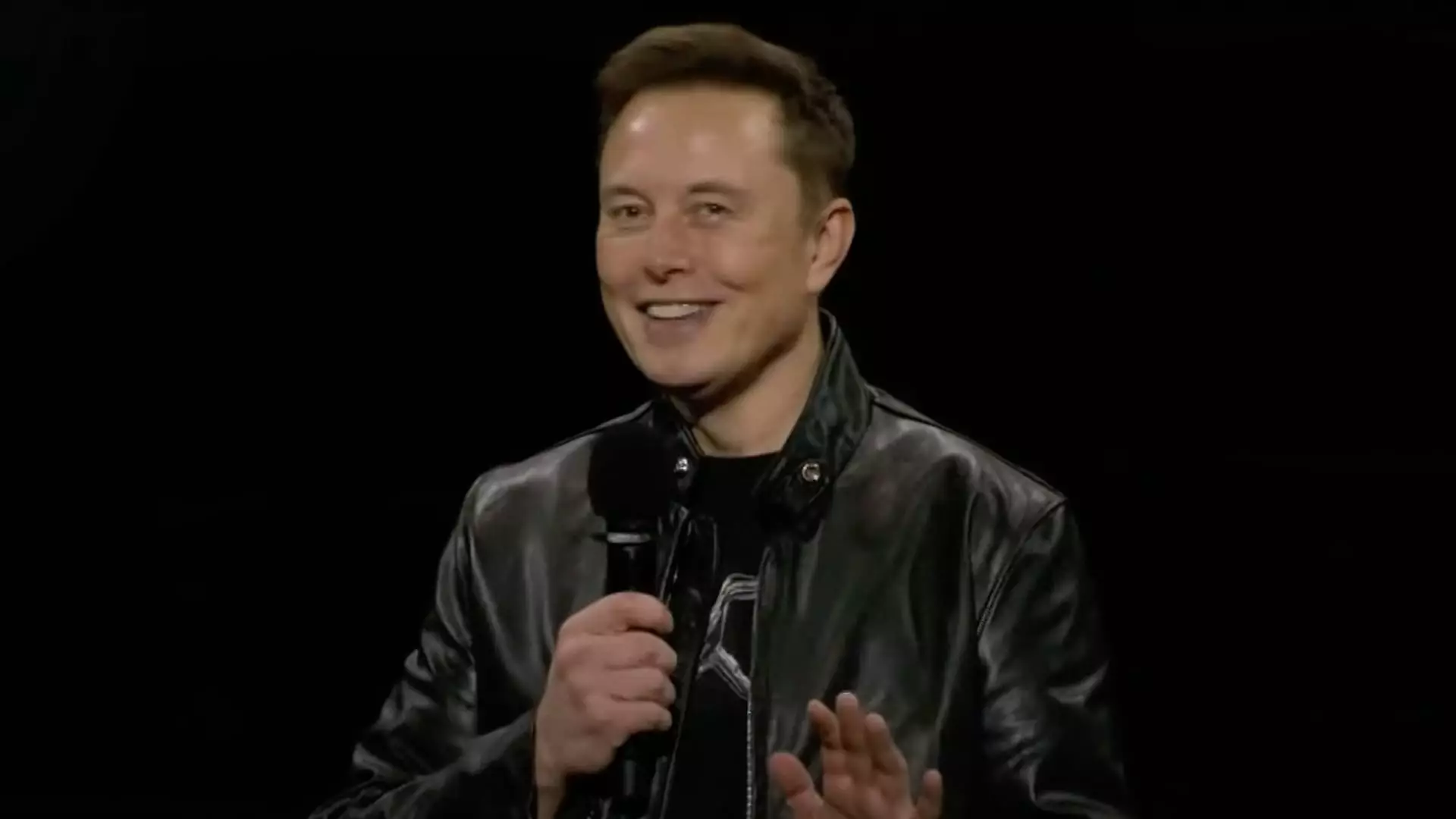Elon Musk, the titular head of Tesla and a frequent subject of media intrigue, recently experienced a staggering increase in his net worth, adding $26 billion to his already incredible fortune. As of Thursday, his net wealth soared to approximately $269 billion, placing him firmly at the top of the wealth hierarchy, a title that has followed him through volatile business landscapes. This remarkable rise was catalyzed by Tesla’s outstanding stock market performance, marking the company’s most significant rally since 2013.
Musk’s financial dominance is partly attributed to his substantial stake in Tesla, where he holds nearly 13% of the company’s shares. His reliance on Tesla’s success underscores a fundamental aspect of his financial empire: the precarious balance of CEO performance and investor expectations. Musk’s wealth is not solely anchored in Tesla; he is also a pivotal player in SpaceX, an enterprise valued at a staggering $200 billion in private markets. Furthermore, with ownership stakes in companies like X (formerly Twitter) and the AI firm xAI, Musk’s portfolio reflects his aggressive pursuit of innovation across several burgeoning sectors.
The stock surge came on the heels of an encouraging earnings report that exceeded analyst expectations, with a reported earnings per share of 72 cents, surpassing the predicted 58 cents. This financial windfall was further bolstered by the introduction of innovative revenue streams, including $739 million from environmental regulatory credits and $326 million from Tesla’s Full Self-Driving (FSD) system. During the earnings call, Musk spoke optimistically about projected vehicle growth of 20% to 30% for the next year, boosting investor sentiment and driving the stock price to a notable 22% gain by the close.
Despite this positive news, the backdrop presents a consistently wavering landscape. Tesla’s stock had faced a rough month leading up to the report, setting the stage for a remarkable rebound. Critics question whether this surge is sustainable or merely a temporary bounce in an otherwise uncertain economic climate. The company’s stock performance throughout the year brings to light the pressures faced by executives in technology-driven markets, where investor confidence can be as volatile as the markets themselves.
Central to Musk’s vision of Tesla is the promise of an autonomous future, a theme that echoes through his public declarations and corporate strategies. He highlighted ambitious plans for a ride-hailing service operating in Texas and California by next year. However, skeptics remain unconvinced, particularly given Tesla’s historically missed targets regarding autonomous vehicle deployments. Competing firms, such as Alphabet’s Waymo, have successfully established commercial driverless services while Tesla has struggled to deliver tangible products capable of operating without human oversight.
Musk’s timeline for technological milestones appears increasingly optimistic, generating skepticism about the feasibility and safety of Tesla’s projects. Despite unveiling futuristic concepts like the heavy-duty Semi truck and a refreshed Roadster in 2017, progress has lagged—illustrating the inherent challenges of such high-stakes innovation. This leads to fundamental questions about whether the narratives Musk crafts can align with practical realities.
Interestingly, Musk’s public persona extends beyond the business sphere into the political arena, where he is an ardent supporter of former President Donald Trump. Following a notable endorsement, Musk has engaged in extensive campaigning, particularly in crucial swing states like Pennsylvania. His political activism brings ethical dilemmas into focus, especially regarding its potential impact on Tesla’s shareholder value.
Many investors express discomfort with Musk’s political expenditures and activities, arguing that his focus on personal beliefs could siphon attention away from corporate responsibilities. As Musk attempts to create a more engaged electorate through incentives like a proposed giveaway of $1 million per day to encourage voter registration, legal gray areas come sharply into view. The U.S. Department of Justice has raised concerns regarding the legality of his sweepstakes, highlighting the intersection of corporate governance and personal advocacy in the digital age.
Musk’s trajectory is emblematic of the modern CEO’s complexities, where extraordinary wealth coexists with significant societal responsibilities. The juxtaposition of his financial successes against the ethical implications of his political actions creates a multifaceted portrayal of leadership in today’s corporate landscape. While his innovations may revolutionize the automotive and tech industries, Musk must also navigate the intricate web of expectations and scrutiny that accompany his stature.
As shareholders and consumers alike look toward the future of Tesla and its ambitious initiatives, the importance of a stable and focused leadership cannot be overstated. Musk’s ability to balance innovation with responsible corporate strategy will ultimately determine not just the fate of his projects but the perception of his legacy as one of the most influential figures of this generation.

